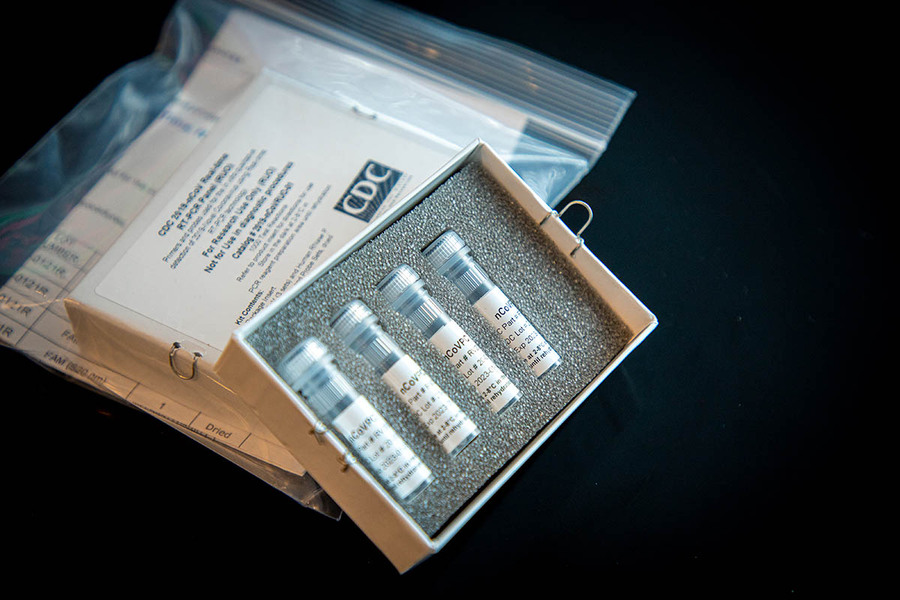NEW YORK CITY: Actors’ Equity Association today hosted a press conference to announce four core principles they say will be needed to support a safe and healthy return to producing live theatre, but offered no timeline for progress on this issue. President Kate Shindle and executive director Mary McColl were joined by former OSHA head and current Equity public health consultant Dr. David Michaels.
“When we reopen the industry,” McColl told reporters assembled over Zoom, “we have one opportunity to get it right. We think that the principles that we are announcing today are the first step in building out protocols to help everyone that works in the theatre onstage, backstage, and even in the front of house.”
In a presentation Equity is distributing to the field, Michaels laid out the core principles and the steps that will go into accomplishing each. First, the epidemic must be under control in the area where the theatre is located—this includes extensive testing, few (if any) new cases in the region, and effective contact tracing protocols. The exact specifics of what determines “extensive” in terms of testing and what determines few in terms of new cases is still yet to be laid out. McColl and Michaels both made it clear during the press conference today that providing more specific benchmarks for theatres would be the next step in their process.
Second, individuals who may be infectious should be able to be readily identified and isolated. This requires a thorough and nimble testing regime, something the country as a whole, let alone every locality, is still struggling to figure out. Tests must also be highly sensitive and specific to reduce or eliminate the possibility of false negatives (which would put the health of others at risk) or false positives (which would have its own repercussions should someone need to leave or be isolated from a production). Additionally, there would need to be a quick turnaround for such test results. At this point, Michaels noted in his presentation, testing like this is not available yet.
Point three seems to be the one most regularly addressed and recognized among theatres aiming at reopening: Venues and productions will have be modified to minimize exposure. This includes steps theatres have already sought to implement, including social distancing and sanitation practicies. But this point also includes looking at physical modifications to venues (including backstage, where the extent of required modifications has yet to be disclosed), adjusting the audition/rehearsal/production process, and adding additional understudies and assistant stage managers to productions.
The final point is perhaps the most difficult to predict in a country in which every weekend seems to bring stories of people completely disregarding social distancing recommendations and regulations. Efforts to control COVID-19 exposure must be collaborative, Michaels emphasized, and there has to be a collective buy-in to these efforts, as well as ongoing evaluation and improvement.
“It relies on the cooperation and the collaboration of everybody involved,” Michaels said. “If someone is feeling sick and having symptoms, but feels like the ‘show must go on’ and they’re going to work through it—I can understand that under previous conditions, that may not be something that we think is a good idea, but it didn’t have the consequences it might have now.”
As of now, Equity’s guidelines end there, with more specifics to follow at some point in the future. Looking at today, and discussing theatres hoping to open in the near future—which can mean anything from a few months to the end of the year —McColl’s answer was succinct: “Not yet.”
In response to a question about whether there are any theatres they know of that may be close to getting a green light from Equity, Michaels said there simply isn’t yet good enough testing to say yes. For her part, Shindle called reliable, available testing the “first box that needs to be checked.”
“We definitely recognize that these theatres want to plan,” said Shindle, responding to questions regarding a timeline for specific protocols reaching theatres. “We want to help as much as possible to get this industry back up and running again. We’re working through it as quickly as is feasible to make sure that we don’t miss anything.”


